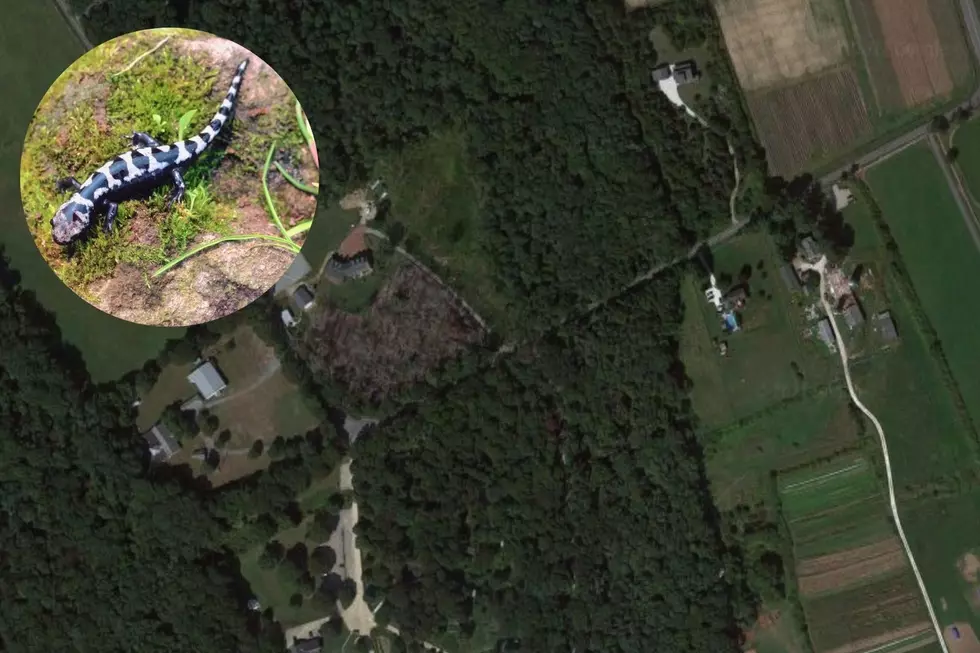
South Dartmouth Family Fighting Penalties Over Salamander Habitat
A South Dartmouth family is claiming that the Commonwealth of Massachusetts is fining them over $42 million for disturbing a "priority habitat" for a salamander species on their land. The Massachusetts Attorney General's Office says it is only stating the statutory penalty for disturbing the habitat of a threatened species and not requesting that specific amount, and that while damages are indeed sought, the "office always seeks reasonable penalties that are in line with what the court has awarded in similar cases."
Marissa Massucco and her husband Bart, longtime residents of Massachusetts, have been living in South Dartmouth since 2017. They moved to this “right-to-farm community” to give their horses and other pets plenty of space to roam. They managed to find the perfect place on Allen’s Neck Road, and knowing they wanted to clear trees, they asked the conservation commission in Dartmouth for permission.
“They said it was no problem,” Marissa said. “Our realtor said it would be a great property to raise the horses and kids.”
However, the AG's Office said the conservation commission was informed of the salamander habitat on the land.
The Massuccos claim that it was only after they cleared some trees and started building horse paddocks that they were told by several state agencies that their entire property was a priority habitat for non-endangered marbled salamanders.
Marissa points out on her website that the conservation committee, their realtor, and closing attorney did not know this information about land when they purchased it in 2017.
The AG's Office, however, contends that the Massuccos' property had been continuously mapped by the Division of Fisheries and Wildlife as a marbled salamander priority habitat since 1995, and that the information was provided to all local conservation commissions and planning boards.
The issue at hand, according to the AG's Office, is that while the Massuccos notified the conservation commission in town about their plan to clear the land that contained the protected habitat, they did not notify the Division of Fisheries and Wildlife, and by the time that did happen, over two and a half acres had already been cleared. The state wants to see that land returned to the salamanders.
Marissa insists that, “The AG’s office served us with court papers one week before Christmas 2020. The state is suing us for $42 million, plus $30,000 each day until this is resolved."
However, the date on the filed complaint was September 19, 2019. The Attorney General's Office also said it has tried to remedy the situation, without having to resort to litigation, for years, and that it is mainly looking for "Massucco to remedy the harm he caused to marbled salamanders and marbled salamander habitat on the site by restoring the marbled salamander habitat he destroyed or degraded, or by implementing a marbled salamander habitat and species conservation and management plan approved by the Division that will provide a net benefit to the marbled salamander."
They are also seeking damages of $35,000 per day for each day of violations of the Massachusetts Endangered Species Act and the Wetlands Protection Act.
Read the complete complaint: Massucco Complaint_final_9.17.20_as filed
Marissa also claimed that the state wishes to use taxpayers money to hire scientists to occupy their property to conduct research for the next few months. According to the AG's Office, that is an agreed-to site inspection that will be conducted this summer and attended by a scientist who works for the Division of Fisheries and Wildlife.
Marissa and her family feel that the state is trying to take back privately owned land. The state claims that Marissa and her family have destroyed a priority habitat. It will be up to a judge to decide who is right.
Editor's Note: A previous version of this story indicated that the Massuccos were being sued for $42 million. It has been updated to reflect the proper penalties as issued in the filed complaint, as well as other information provided by the Attorney General's Office.
Massachusetts Wildlife You Can Legally Take Home as Pets
The Best Movies Released in the '90s
More From WFHN-FM/FUN 107









